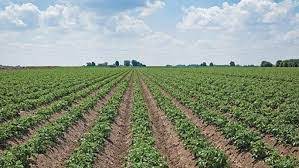
The Federal Government of Nigeria has unveiled plans to embark on a significant dry season farming initiative in 2024, aiming to create employment opportunities for 5–10 million individuals across the nation. This announcement was made during the 30th regular meeting of the National Council on Water Resources and Sanitation, convened by the Federal Ministry of Water Resources and Sanitation in Abuja.
At the heart of this initiative is the development of approximately 323,000 hectares of farmland nationwide, with the objective of enhancing agricultural productivity and alleviating food insecurity. The federal government’s commitment to supporting farmers and agro-dealers has sparked optimism within the agricultural community, with hopes that the forthcoming months will witness a decline in food prices.
According to reports from the National Agricultural Growth Scheme and Agro-Pocket Project, released by the Federal Ministry of Agriculture and Food Security in January 2024, the focus of the initiative centers around the cultivation of four major crops: wheat, rice, maize, and cassava, with an emphasis on wheat cultivation to kickstart the program.
Detailed plans outlined in the document obtained from the Federal Ministry of Agriculture and Food Security reveal ambitious targets for the cultivation of various crop value chains during the 2023–2024 dry season farming period. Specifically, the initiative aims to cultivate 123,000 hectares of wheat, 150,000 hectares of rice, 30,000 hectares of maize, and 20,000 hectares of cassava.
By harnessing the potential of dry season farming, the Federal Government seeks to harness the immense agricultural resources of the nation, diversify the economy, and stimulate job creation on a massive scale. The cultivation of key crops on such a large scale not only holds the promise of boosting food production but also contributes significantly to poverty reduction and rural development.
As the nation prepares to embark on this ambitious agricultural endeavor, stakeholders are encouraged by the government’s proactive measures and commitment to harnessing the full potential of the agricultural sector.
With a concerted effort from all stakeholders, the dry season farming program holds the promise of transforming Nigeria’s agricultural landscape, fostering sustainable economic growth, and improving the livelihoods of millions across the nation.





